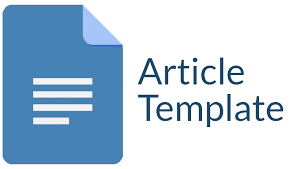EVALUASI PROGRAM PAHLAWAN EKONOMI DALAM MENGATASI KEMISKINAN DI KOTA SURABAYA
DOI:
https://doi.org/10.26740/publika.v10n4.p1065-1078Keywords:
Program Evaluation, Economic Hero, Poverty, Community EmpowermentAbstract
In overcoming the problem of poverty, the Surabaya City Government launched the Economic Hero program. This program focuses on empowering poor women and housewives in the city of Surabaya, but in its current development there is a reduction in the number of members participating in training and mentoring. This study aims for the economic hero program as one of the Surabaya City Government in overcoming the problem of poverty. The research approach uses a qualitative, descriptive type of research. The subject of this research is the Head of Family Economic Empowerment Sector DP5A Family Welfare of Surabaya City and one of the UMKM members of the economic hero program. The research data sources consist of primary data and secondary data. The research focus uses Dunn's evaluation theory, namely effectiveness, efficiency, evaluation, equity, responsiveness, and accuracy. The data analysis technique of this research is interactive. The results of the study explain that the hero program has been effective and efficient because it has been in accordance with its objectives, namely reducing poverty in the city of Surabaya and the resources in the program have been managed properly. On the criteria, the economic victory program has not been said to be adequate due to obstacles, namely the reduction in program members due to changing conditions, lack of knowledge and understanding of members, and access to training that is still not optimal. In the equalization criteria, the targets in the economic hero program have been said to be right. This program has received a good response from the community as evidenced by the addition of program members every year. On. criteria of accuracy, this program can be said to be right because it provides benefits for members. The author suggests maximizing the facilities of program implementers, providing a place with wifi for training access, and maximizing exhibitions in each sub-district to introduce products to the public.
Downloads
 Abstract views: 475
,
Abstract views: 475
, PDF Downloads: 832
PDF Downloads: 832





